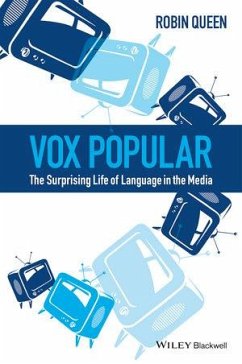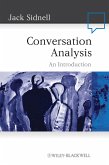Our favorite movies and TV shows feature indelible characters who tell us about themselves not just in what they say but in how they say it. The creative decisions behind these voices-such as what accent or dialect to use-offer rich data for sociolinguistic study. Ideal for students of language variation as well as general readers interested in media, Vox Popular is an engaging tour through the major issues of sociolinguistic study as heard in the voices from mass media.
. Provides readers with a unified and accessible picture of the interrelationships between language variation and the mass media
. Presents detailed original analyses of multiple audiovisual media sources
. Includes a broad methods chapter covering quantitative and qualitative methods in a style not available in any other textbook
. All theoretical terms are accessibly explained, with engaging examples, making it suitable for non-academics as well as undergraduate students
. Incorporates pedagogical textboxes throughout and includes sections dedicated to developing practical skills for the field
Hinweis: Dieser Artikel kann nur an eine deutsche Lieferadresse ausgeliefert werden.
. Provides readers with a unified and accessible picture of the interrelationships between language variation and the mass media
. Presents detailed original analyses of multiple audiovisual media sources
. Includes a broad methods chapter covering quantitative and qualitative methods in a style not available in any other textbook
. All theoretical terms are accessibly explained, with engaging examples, making it suitable for non-academics as well as undergraduate students
. Incorporates pedagogical textboxes throughout and includes sections dedicated to developing practical skills for the field
Dieser Download kann aus rechtlichen Gründen nur mit Rechnungsadresse in D ausgeliefert werden.
Hinweis: Dieser Artikel kann nur an eine deutsche Lieferadresse ausgeliefert werden.









